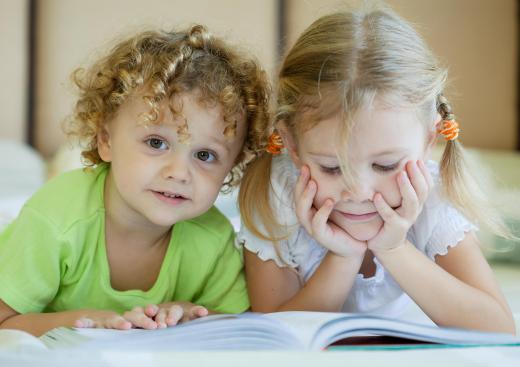Teaching children languages other than their native tongue can be a challenge, but it’s a challenge that many people find to be worthwhile. Although some people believe that the teaching process should begin from the moment the child is born, others believe it’s best to start when the child is 30-36 months old, after he or she has gotten comfortable with his or her first language. If the goal is to make the child truly bilingual, one effective method is having one person speak to the child almost exclusively in one language and another person speak to the child almost exclusively in the second language. Giving the child access to children’s books, children’s programs and children’s music in the second language can also help him or her learn faster.
Deciding when to start teaching children languages other than their native tongue will make a difference in how quickly they will be able to learn the new language. Many people believe that starting to teach a second language too soon will confuse a child, and that he or she will have difficulty grasping both the first language and the second language. For this reason, it is often recommended that the process of teaching a child a second language doesn’t begin until he or she is almost 3 years old. It is true that learning languages can be easier for children than it often is for adults, but teaching children languages can become much more difficult after they have learned to read in their first language. It’s never too late for anyone to start learning a new language, but children who start learning before they start school often have an easier time becoming fluent in the second language.

One of the more effective methods of teaching a child two languages at the same time is the “one parent, one language” method. It’s an approach that works well if the objective is to make the child bilingual, or fluent in two different languages. With this system, one parent or caregiver tries to speak to the child in one language at all times, and the other parent or caregiver tries to speak to the child in the other language at all times. Using this method is believed to drastically reduce the confusion that a child might experience while learning two different languages. This is an especially good system to use if each parent is fluent in the language that he or she will be speaking to the child.

To aid in teaching children languages, one can create an environment designed to help in this endeavor. When buying picture books and other reading materials for a child, a person might try buying similar books in the language the child is being taught. If the child enjoys listening to children’s music, one might buy recordings of children’s music in the second language. Recordings of movies, children’s programs and even music videos in the second language also can be bought. One should keep in mind that children often learn things faster and more successfully when they are taught new ideas and concepts in a fun and enjoyable way.
